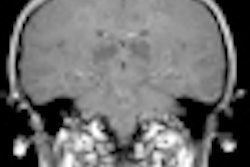The National Council on Aging (NCOA) said that communication about the safety of medical imaging for patients with electronic implantable devices is often inadequate.
The Washington, DC-based NCOA performed a national survey of older adults, caregivers, and healthcare providers to evaluate their knowledge and awareness of medical imaging safety, querying 652 older adults, 273 caregivers, and 152 physicians in November 2009.
The survey, sponsored by a grant from Medtronic, found that nearly a third of patients and more than half of caregivers did not recall being informed at the time the device was implanted that they or the person they care for might not be eligible for some forms of imaging, the NCOA said.
In addition, the survey found that three in 10 patients with electronic implantable devices have had an MRI scan despite the risks, and nearly 20% of this group reported experiencing problems with their devices afterward. In other findings, physicians reported that they used clinical guidelines often, referring to the American College of Cardiology (ACC), the American College of Radiology (ACR), and the American Heart Association (AHA) guidelines in near-equal numbers for medical imaging, according to the NCOA.
The NCOA said that 98% of all surveyed healthcare providers supported more education on medical imaging and electronic implantable devices to help ensure awareness of critical guidelines.
Related Reading
FDA warns of pacemaker, MRI issues, December 17, 2009
Medtronic touts MRI pacemaker study, May 14, 2009
FDA: CT can cause medical device malfunction, July 15, 2008
MRI OK for patients with newer implanted cardiac devices, November 25, 2007
MRI of cardiac devices OK, but requires following strict guidelines, January 30, 2007
Copyright © 2010 AuntMinnie.com


.fFmgij6Hin.png?auto=compress%2Cformat&fit=crop&h=100&q=70&w=100)





.fFmgij6Hin.png?auto=compress%2Cformat&fit=crop&h=167&q=70&w=250)











